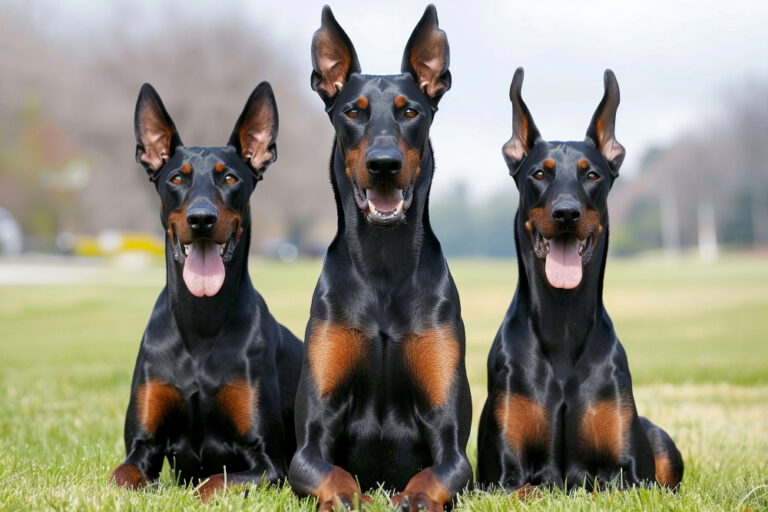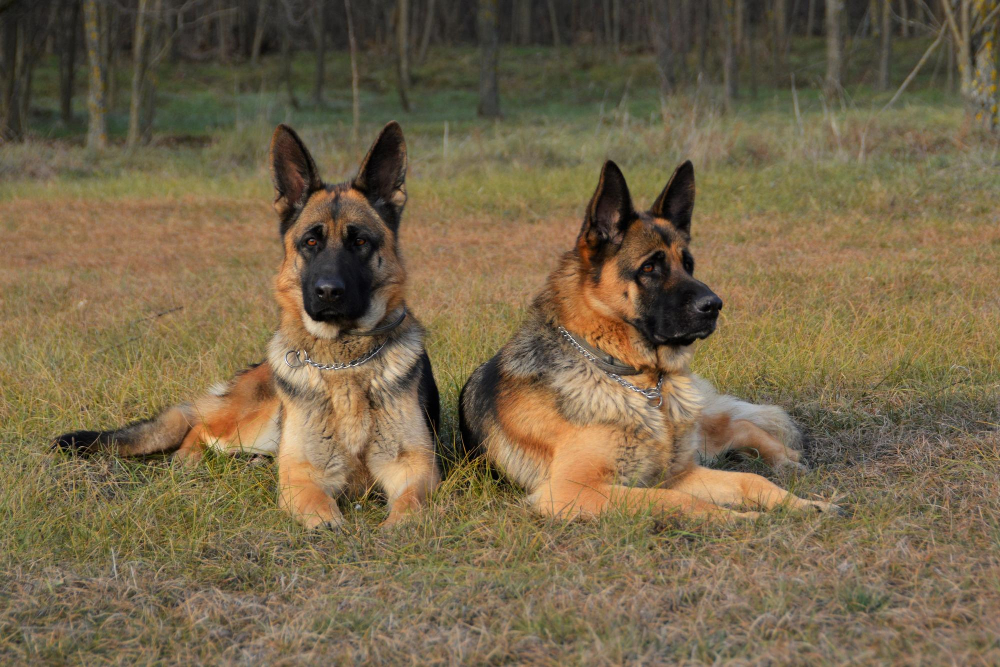
Choosing the right puppy can be exciting but daunting, especially for a versatile and beloved breed like the German Shepherd. Whether you’re looking for a loyal family companion, a protective watchdog, or a highly trainable working dog, understanding the differences between female and male German Shepherd puppies is crucial. This guide will break down the key distinctions between the two genders, helping you make an informed decision that aligns with your lifestyle and preferences.
Also, if you are inclined toward male German shepherds, we have something for you. Check out our latest male German shepherd puppy for sale since it might serve your purpose.
When it comes to temperament, the difference between female and male German Shepherd puppies can be significant.
Important Note: A female might be your best bet if you prefer a calm, mature dog. While a male German shepherd puppycould be the right choice for those who want a playful, high-energy companion.
Size matters when choosing a dog, especially if space is a concern.
Important Note: Consider your living environment and physical capabilities when choosing. A male German shepherd puppy may require more space and strength to handle, while a female might be better suited for smaller homes or less physically demanding owners.

Training a German Shepherd is essential, given their intelligence and potential for strong-willed behavior.
Important Note: If you’re a novice owner or want an easier-to-train dog, a female German Shepherd might be more suitable. If you’re experienced or up for the challenge, a male German shepherd puppy can be incredibly rewarding with the right approach.
Both female and male German Shepherds are prone to certain health issues, but there are gender-specific concerns to be aware of.
Important Note: Regular veterinary care is crucial for both genders, but be mindful of specific health risks associated with each. Consult your vet about the best time for spaying or neutering to avoid complications.
How your German Shepherd interacts with others is largely influenced by gender.
Important Note: A female might integrate more easily if you have a multi-pet household or frequently entertain guests. For those seeking a protective companion, a male German Shepherd puppy could be the better choice.
German Shepherds are known for their high energy levels, but there are differences between the genders.
Important Note: Your daily routine and activity level should influence your decision. A male may be better suited for active individuals, while a female might be more adaptable to a moderate activity lifestyle.
The financial aspect of dog ownership is an important factor to consider.
Important Note: Budget for both the initial purchase and ongoing care. While males might have slightly higher costs, the difference is usually insignificant.
Understanding behavioral tendencies can help you choose the right gender for your needs.
Important Note: If you’re looking for a dog that’s affectionate and close-knit with the family, a female might be your best choice. Consider a male German shepherd puppy if you appreciate a slightly more independent but still loyal dog.
The intended role of your German Shepherd should influence your choice.
Important Note: Match the gender of your German Shepherd to your intended purpose. Females excel as companions, while male German Shepherd puppies often shine in working roles.

Sometimes, hearing from other owners can provide valuable insights.
Important Note: Real-life experiences can help you weigh the pros and cons of each gender. Consider contacting German Shepherd communities or speaking with breeders for firsthand insights.
Not necessarily. While male German Shepherds can be more territorial and assertive, proper training and socialization can prevent aggressive behaviors in both genders.
Female German Shepherds are often recommended for first-time owners due to their calm nature and ease of training.
Females, especially young children, are generally more nurturing and may be better suited for family environments.
Males can be more independent and require more patience during training. However, they can be just as well-trained as females with consistent effort.
Lifespan is influenced more by genetics and care than gender. However, spaying or neutering can contribute to a longer, healthier life.
When choosing between a female and male German Shepherd puppy, it’s essential to consider your lifestyle, preferences, and the role you want your dog to play in your life. Females tend to be calmer, more affectionate, and easier to train, making them ideal for families and first-time owners. Males are often more energetic, independent, and suited for working roles or active individuals.
If you’re still uncertain about which one to choose, talk to the experts at Smith farms German Shepherd. We’ll help you sort the best companion between the female and male German shepherd puppy from sale.